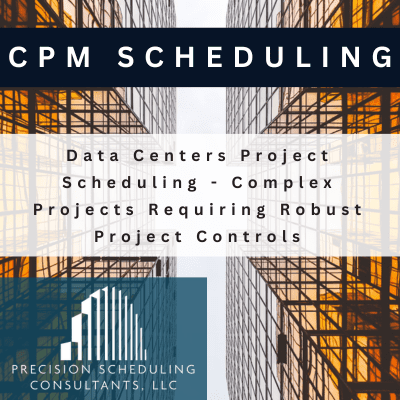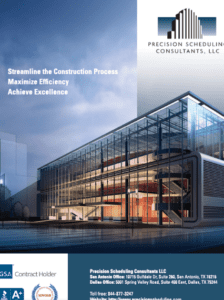The increasing development of data centers has paralleled a heightened demand for effective project scheduling. The surge in reliance on artificial intelligence (AI) contributes significantly to this need. Organizations seek to harness AI’s capabilities for data processing and storage. Applications of AI, including machine learning and deep learning, necessitate substantial computational power. This prompts governments and businesses alike to invest in robust data centers.
Data centers provide the essential infrastructure required to facilitate AI-driven operations. As the pressure for faster data processing, minimal latency, and increased storage escalates, significant resources are being allocated. These resources are focused on the construction and modernization of data centers and colocation facilities.
Critical Role of Construction Project Scheduling
Timely construction project scheduling is pivotal for the successful completion of data centers. The increasing complexity and scale of these projects involve collaboration among various teams and suppliers and adherence to numerous regulatory frameworks. Moreover, project managers must diligently monitor progress, assess risks, and manage resource allocation to meet strict deadlines and protect substantial investments.
Utilizing sophisticated scheduling software empowers project managers to monitor real-time progress, identify potential bottlenecks, allocate resources effectively, and meet crucial project milestones. Even minor delays in the construction process can lead to significant financial repercussions. Consequently, missed opportunities can occur.
Moreover, integrating project scheduling with other key management systems—such as budgeting and supply chain oversight—facilitates smoother operational coordination. By providing an overview of the entire project lifecycle, managers can prevent budget overruns and maintain project scope. Schedules can be adapted dynamically to accommodate changing conditions.
The Importance of On-Time Project Delivery
For data centers, timely completion is not merely a goal but an economic necessity. The functionality of data centers underpins a vast array of services, from cloud computing to financial transactions and healthcare protocols. Furthermore, delays in launching a new data center can severely disrupt these essential services. Consequently, there can be notable financial setbacks for dependent businesses.
This urgency extends to AI-related services, where companies rely on advanced data centers with state-of-the-art capabilities. Delays in construction could create a resource bottleneck for AI research and development. This has the potential to stall technological progress and affect economic growth. Additionally, many data center initiatives come with significant backing from investors who anticipate quick returns. Therefore, maintaining strict construction timelines is crucial to ensuring the project’s financial success.
Data Centers: Catalysts for Economic Growth
Data centers are integral not only for modern technology but also for driving broader economic growth. They provide vital infrastructure that supports various sectors, from startups to established corporations, enabling continuous digital operations.
The expansion of data centers generates employment opportunities across construction, technology, and operational spheres. It stimulates economic activity by paving the way for new business ventures. For instance, as cloud service providers and AI companies expand their operations, they rely heavily on data centers. This results in widespread benefits across industries, including e-commerce, healthcare, and finance.
Furthermore, the proliferation of data centers catalyzes advancements in AI and big data analytics, reshaping economies globally. The increase in computational power enables the development of smart cities. Additionally, it promotes innovations in automated manufacturing and healthcare solutions, all contributing to economic prosperity.
Accelerating Data Center Development
In the U.S., previous administration initiatives aimed to enhance infrastructure included a significant focus on fostering data center growth. The efforts were geared towards augmenting the number and efficiency of data centers. This ensured competitive positioning for American firms in the global market.
Policies promoting investments in data centers and reducing regulatory barriers were designed to support private sector engagement in infrastructure projects. The strategic emphasis on these facilities underlined their crucial role in national security. This is amidst growing reliance on cloud services and AI technologies.
Looking Ahead: The Future of Data Centers
As AI continues to reshape industries worldwide, the necessity for expansive data centers will only escalate. Building these facilities is vital not only for supporting technological advancements but also for bolstering economic progress. Efficient project scheduling will be essential. It will help in realizing the timely execution of these significant infrastructure projects, helping to prevent disruptive delays.
Data centers are central to the development of AI and are foundational across numerous industries. Their influence on the economy is substantial, promoting job creation and innovation. With ongoing initiatives advancing data center infrastructure in the U.S., the drive to expand and enhance these facilities will persist. Thus, effective project management and proactive problem-solving will be critical to ensuring that data centers are prepared to meet the future’s demands


